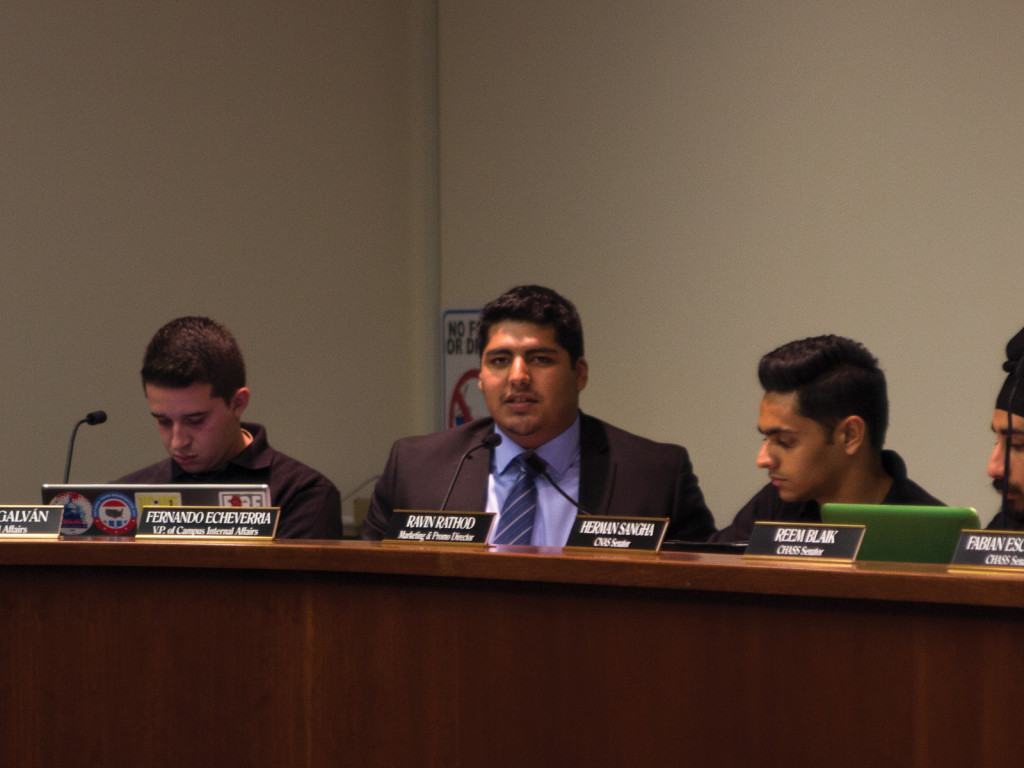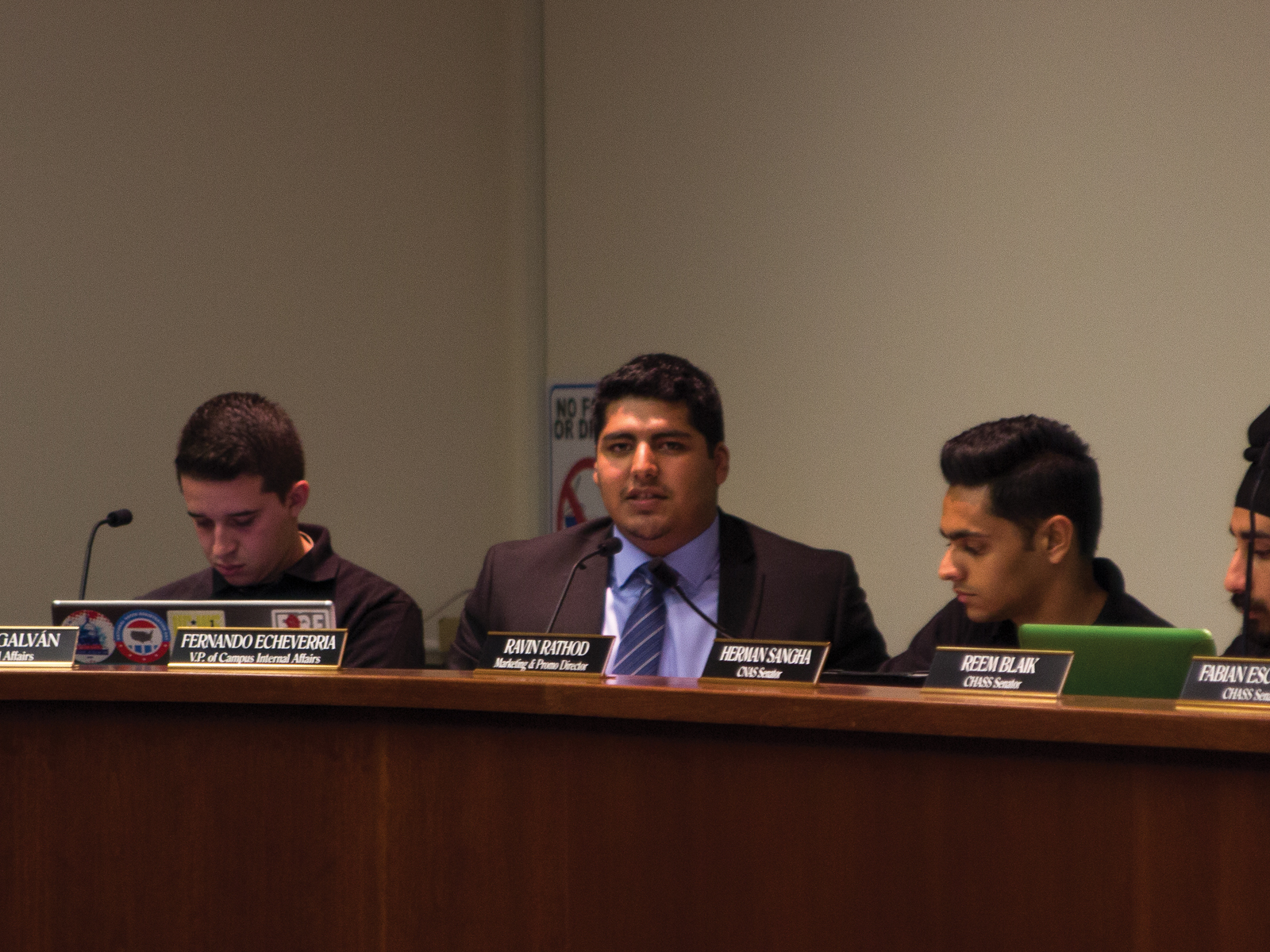
Last Wednesday, members of ASUCR approved $4,000 in Green Campus Action Plan (GCAP) committee funds to maintain a generator in UCR’s community garden for the purposes of creating electricity for campus events — one of the earliest fall initiatives to tap into funding approved by last year’s GCAP referendum. Other key topics included Senator Colette King’s update about potential changes to R’Courses, classes taught by undergraduates, and Senator Akeem Brown’s goals to declare November as a month of recognition for transfer students on campus.
Vice President of Internal Affairs Fernando Echeverria explained that the GCAP committee provides a series of grants to mainly student-led projects with goals for sustainability. “(Grant recipients) provide us with their proposal and outline what the project is, how it’s going to affect the campus and the students and how it is a sustainability related project,” he explained. One of these proposed projects included the repair of the mobile renewable energy generator (MREG), which uses a mixture of batteries, solar panels and wind turbines to generate power.
Echeverria broke down the specific costs of replacing parts and upgrading the MREG, stressing the importance of repairs since many campus and local events tend to rely heavily on the generator. “The costs will mainly be labor costs and other expenditures will go towards parts of the machine such as the LCD display in which all the analytics will be shown, adding to the educational component, increasing green awareness in general,” he said. Five UCR engineering students with faculty members will be in charge of implementing the repairs.
Despite initial scrutiny over the use of the funds, the motion for the $4,000 grant was unanimously passed by senate.
King also provided updates to R’Courses, a pilot program that she played a role in launching last spring with the help of R’Courses and Undergraduate Educational Initiatives Coordinator Elizabeth Claassen-Thrush. “R’Course is a program in which students work with a supervisor to create a syllabus and with that, teach their own class,” explained King. “The class creates another way for students to learn and possibly apply what they have learned in other areas of life.”
Going into its second year, the program may potentially receive some modifications. King stated that this year, student teachers will be given letter grades and enrolled students will receive a pass or fail grade and one unit of credit. “Ultimately, I’m striving to bring back the two units of credit which was applied last year and possibly work with professors in figuring out a way for these classes to be a grade booster in their respective classes,” said King. “As a student teacher last year and this upcoming year, I felt that the work I gave my students was deserving of higher compensation.”
“The timeline and modifications for this upcoming year have already been briefed and the full proposal will be discussed by the Academic Senate executive committee (on Oct. 27),” said Claassen-Thrush.
Other individual initiatives discussed include Senator Brown’s desire to draft a resolution that calls for the UCR administration to recognize November as transfer recognition month, since this is around the time that transfer applications are due; transfers who have already been admitted will also be in their respective universities for at least 30 to 90 days.
Brown requested assistance in drafting a resolution to be given to campus administration in hopes that it will be done by the end of this October.
“The ultimate goal is for this to be a California-wide recognized month but as of now a collaborative effort with California State University San Bernardino and Riverside Community College will be the first steps in this initiative,” Brown said, referring to feeder schools for transfer students that surround the UC Riverside community.
Members of ASUCR appeared to be in favor of having a transfer recognition month with Brown holding the belief that, “UCR would be taking (the) lead on a much-advocated educational issue in California,” by supporting his initiative.
Brown has already taken action this past summer by working with HUB Administrative Director Todd Wingate and Vice Chancellor of Student Affairs James Sandoval to designate the downstairs area of the lounge (across from the main HUB building) as a future lounge solely for transfer and commuter students.
There have been mixed views about the proposed lounge area from various students. Third-year biology major Unnati Gandhi expressed, “I understand that commuters especially are probably in need of a place to relax, but the lounge area is a public area of campus and should remain so.”
Weekly ASUCR senate meetings take place on Wednesdays at 6:30 p.m. in the Senate Chambers.








